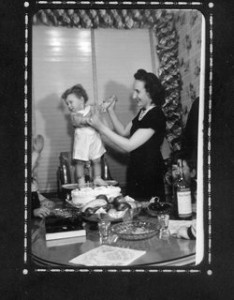 I was planning to write this a couple of weeks ago; then my mother passed away last week and my viewpoint changed from author to recipient, so I’d like to capture in this essay how notes register with the family members. I published three pieces about my experiences while dealing with my mother’s death from the day it happened until the funeral. You can read them at my blog.
I was planning to write this a couple of weeks ago; then my mother passed away last week and my viewpoint changed from author to recipient, so I’d like to capture in this essay how notes register with the family members. I published three pieces about my experiences while dealing with my mother’s death from the day it happened until the funeral. You can read them at my blog.
What I am about to say applies if you are close to someone and knew the deceased. We live in a Hallmark world, and are conditioned to run to the store and buy a cute/clever/funny/touching card for every occasion. There are shelves of sympathy cards. Some cards are excellent and convey sincere emotion. I particularly liked a card that simply said “May sweet memories comfort you in your loss. If, however, you are close to the mourner, my advice to you is walk on by, get yourself a blank card and envelope and write something meaningful in your own hand. No email. No Facebook. Here are 10 tips on how to write a condolence letter and what to say and what not to say:
- When someone is experiencing raw grief, telling them “she’s in a better place,” or “he’s at peace,” is not comforting. My mother, for example, was in a better place and at peace when she was in her condo with her children and grandchildren around her. Yes, I know all about heaven, but if it were really a better place the suicide rate would skyrocket. Anyway, your remarks are directed at survivors who are in the earliest stages of accepting that their loved one will no longer be physically or telephonically present in their lives. They don’t buy the ‘better place’ thing. And by the way, did you ever notice that they call it the ‘better’ place, not the ‘best’ place?
- Don’t write that you know how they feel. Everybody believes their grief in unique in the moment. Anyway, and ‘I know how you feel’ is about you and not them.
- Regarding “at least they are no longer suffering,” keep it to yourself. The mourners know it, and have conflicting emotions about wishing their loved one’s pain and suffering would end. Your reminder of this may be construced as insensitive.
- Keep the note short. Save your time for a phone call or visit with the bereaved. I’d rather sit down with you and hear you tell me about something in my mother’s life that you shared that’s news to me.
- If you’re struggling with an opening, try something direct like “I’m so sorry your mother is gone…” and add something “We
 will miss her.”
will miss her.” - Say something nice about the deceased, e.g. “I always loved her sense of humor/style/etc.”
- If you really care about the person you are writing to, tell them they will be hearing from you or seeing you soon, and stick to it. Put it in your calendar. Do it.
- Put the decedent’s date of death in your calendar as well. It’s a great time for you to call, even if you’ve been in touch regularly.
- Read my articles about grief and the holidays on AfterTalk. This is when you can step up and do something tremendously meaningful. Here’s the link: grieving during the holidays.
- If the person you are writing to lost a spouse and you socialized with them regularly, please–I beg you–don’t shut them out because they are single. They’re not going to steal your husband/wife. Life is not the Soaps; it rarely happens. Tell them in your condolence note that you expect to see them at the usual activity as soon as they feel they can participate.
Here is the best I’ve gotten. It’s from a friend: “I was sorry to learn about your mom’s passing. It sounds, from what you told me  over the years, that she lived a fascinating and productive life. I don’t know all that much of the details of that life, but what I do know is that she raised a ‘mensch’ of a son. Love….
over the years, that she lived a fascinating and productive life. I don’t know all that much of the details of that life, but what I do know is that she raised a ‘mensch’ of a son. Love….
If you are thinking of sending flowers, gift baskets, or other tokens of your sympathy, you are welcome to visit AfterTalk’s Sympathy Store. The selection and pricing is excellent.


Dear Larry,
Thank you for extending a helping hand, in the task of condolence writing. Aftertalk is a tremendously grounding resource, and a wonderful testimony to the heart, of all the people involved in it.
May you all go on from strength to strength.
Blessings,
Philip